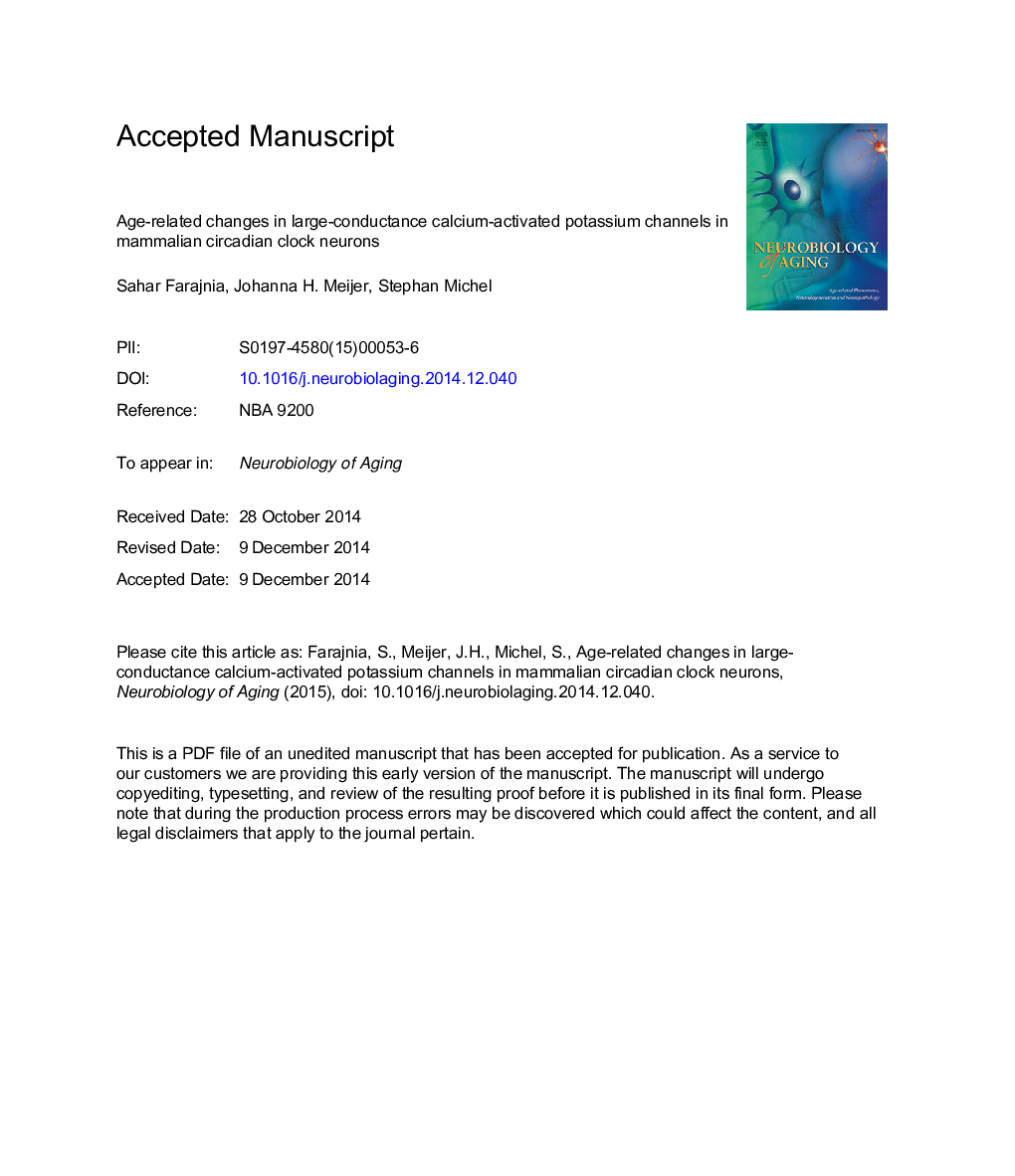| Article ID | Journal | Published Year | Pages | File Type |
|---|---|---|---|---|
| 6804280 | Neurobiology of Aging | 2015 | 37 Pages |
Abstract
Aging impairs the function of the suprachiasmatic nucleus (SCN, the central mammalian clock), leading to a decline in the circadian rhythm of many physiological processes, including sleep-wake rhythms. Recent studies have found evidence of age-related changes in the circadian regulation of potassium currents; these changes presumably lead to a decrease in the SCN's electrical rhythm amplitude. Current through large-conductance Ca2+-activated K+ (BK) channels promote rhythmicity in both SCN neuronal activity and behavior. In many neuron types, changes in BK activity are correlated with changes in intracellular Ca2+ concentration ([Ca2+]i). We performed patch-clamp recordings of SCN neurons in aged mice and observed that the circadian modulation of BK channel activity was lost because of a reduction in BK currents during the night. This reduced current diminished the afterhyperpolarization, depolarized the resting membrane potential, widened the action potential, and increased [Ca2+]i. These data suggest that reduced BK current increases [Ca2+]i by altering the action potential waveform, possibly contributing to the observed age-related phenotype.
Keywords
Related Topics
Life Sciences
Biochemistry, Genetics and Molecular Biology
Ageing
Authors
Sahar Farajnia, Johanna H. Meijer, Stephan Michel,
